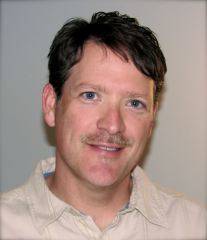“Won’t you help to sing these songs of freedom?” Bob Marley asked a generation. In a few minutes of music he retold the story of African slavery, the continued pursuit of liberty, and quoted a line from Marcus Garvey that is now almost a hundred years old.
Garvey, a Jamaican-born descendent of slaves, was a controversial figure in his day. Incendiary with his words and actions, he met or instigated conflict everywhere he went. Yet, his influence was profound, leading Dr. Martin Luther King Jr. to compliment him as the first man of color to lead a mass movement toward freedom.
It was Garvey who said, “Emancipate yourselves from mental slavery; for none but ourselves can free our minds.” And regardless of whatever quarrels African-American, Jamaican, or white leaders may have had with his means and methods, on this count Garvey was absolutely correct: Freedom begins in the heart and mind.
This is not to say that real, tangible freedom is unnecessary, or that all people, by dignity of being human, are not entitled to “life, liberty, and the pursuit of happiness.” It simply means that said liberation must begin internally. One must break the shackles of manipulation, the cognitive and emotional control that outside forces hold.
Spiritual freedom is no different. Jesus came, by his own testimony, “to proclaim freedom to the imprisoned,” and Paul echoed this, saying, “It is for sake of freedom that Christ has set us free,” adding, “never again submit to a harness of slavery.” Thus, congregations and communities of faith should be in the emancipation business, not entrapping hearts and minds.
I’m deeply informed on this point by the late Dr. Herschel Hobbs. A church leader for more than 50 years, he spent the bulk of his career at the First Baptist Church of Oklahoma City where he pastored, preached, wrote, and led his denomination. An issue he was most keen to address was individual independence.
He believed that all people could enjoy a relationship with God, a relationship that should be pursued without manipulation from any appointed religious police. Writing a seminal paper more than fifty years ago, he said, “I insist on the Lordship of Jesus Christ and the authority of the Scriptures. But I also insist that every person shall be free to decide for himself or herself in matters of faith.
“I believe an individual has the right to become a Baptist, a Lutheran, a Roman Catholic, a Muslim, a Jew, a Jehovah’s Witness, or an atheist. Each person is competent before God for that choice, and each individual is free to live out their faith without coercion or interference.”
No, I’m not completely sure what “emancipation from mental slavery” looks like, but I know that if we shackle people’s minds and spirits — especially if we do so in the name of God — we have committed nothing short of an atrocity. For God created people to be free, and we must “never again submit to a harness of slavery.”
Ronnie McBrayer is a syndicated columnist, blogger, pastor, and author of multiple books. Visit his website at www.ronniemcbrayer.org.


